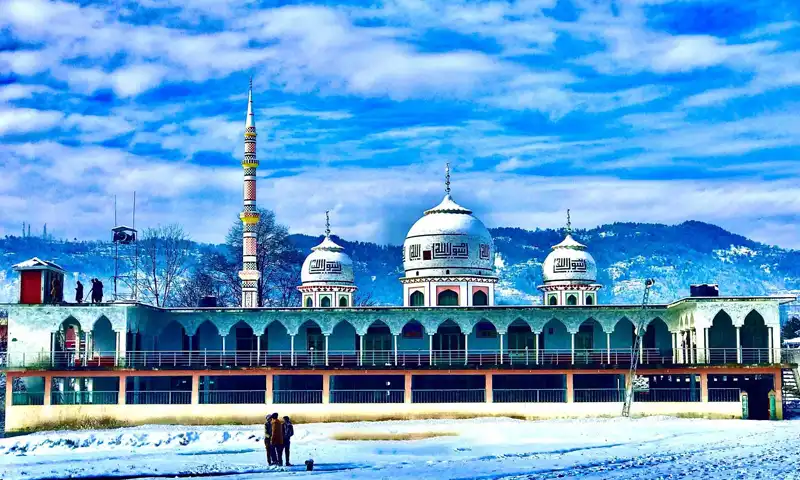- Web Desk
- Feb 24, 2026
AJK Madrassas ordered to shut amid military tensions with India
-

- Adnan Yousaf
- Apr 30, 2025

MUZAFFARABAD: The Azad Jammu and Kashmir (AJK) government has announced a 10-day closure of all madrassahs (religious seminaries) across the region from April 30 to May 10, citing “rising temperatures”.
A notification issued by the AJK Directorate of Religious Affairs instructed all district and tehsil-level muftis to ensure compliance with the decision. The order has been described as “urgent and mandatory” for all religious institutions.
Officially, the shutdown is being justified due to an apparent increase in heat, though analysts have questioned the reasoning. “The weather is still relatively mild, and much of Azad Kashmir is a hill region,” they noted. “If heat was genuinely the issue, schools and colleges would have been closed as well.”

Local journalist Haris Qadeer from Poonch district suggested in a Facebook post that the decision may be a precautionary measure in light of fears that India could target madrassahs under the guise of a retaliatory strike following the recent Pahalgam attack.
Tensions between the two nuclear-armed neighbours have escalated in recent days, with New Delhi blaming Islamabad for the Pahalgam incident and hinting at possible military responses. Analysts believe the closure of madrassahs may be aimed at preventing casualties in the event of an Indian airstrike or cross-border raid.
According to Qadeer, citing government sources, there are fears of an imminent Indian military “adventure,” possibly targeting religious institutions in a so-called “surgical strike.”
Increased military rhetoric from Indian officials and past precedents have amplified the concerns. In 2016, following the Uri attack, India claimed to have carried out cross-border strikes in AJK.
Similarly, in 2019, after the Pulwama attack, Indian warplanes crossed into Balakot, triggering a military standoff that included Pakistan downing an Indian jet and capturing its pilot.
Security analysts warn that a repeat of such strikes is not out of the question.
Indian military historian Srinath Raghavan told the BBC that New Delhi could be preparing a strong response to send a message both domestically and across the border.
“Given the precedent set in 2016 and 2019, the Indian government may find it difficult to settle for anything less,” he said. “But any escalation could invite retaliation from Pakistan, and the real danger lies in a miscalculation from either side.”
Earlier in the day, AJK President Barrister Sultan told Reuters in an interview that “there is a lot of activity going on and anything could happen so we have to prepare for it. These few days are very important.”
He said activity along the Line of Control (LoC) that divides the two portions of Kashmir was “hot” and that Pakistan had shot down two Indian drones in the last few days.
Barrister said he had not received intelligence on when and where India was expected to strike, but his administration was working with groups such as the Red Crescent Society to prepare extra medical and food supplies in case of any conflict.
“Red Crescent are working on it and we are working on displaced people in affected areas,” he said.




